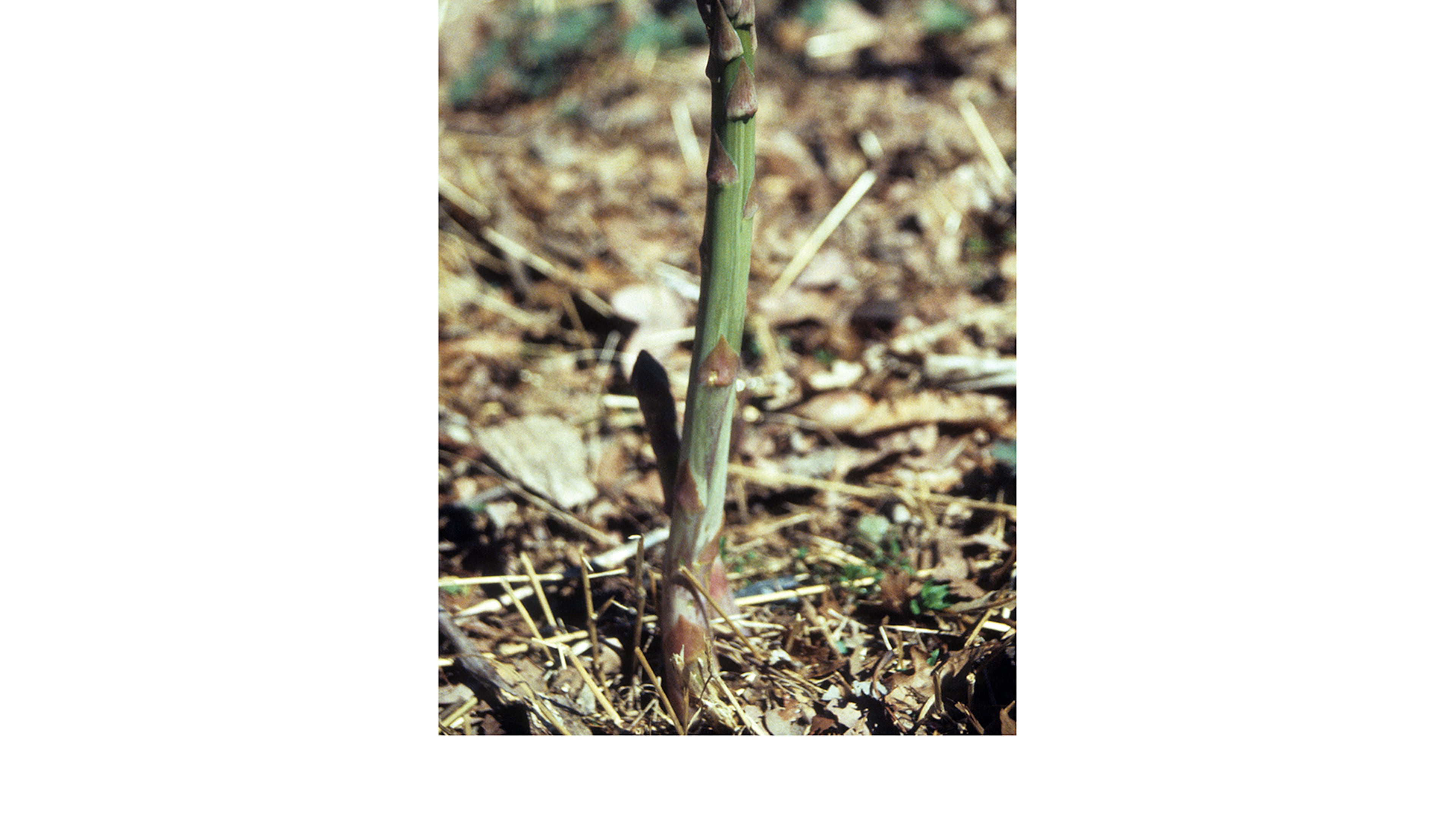An easy way to weed asparagus

Q: I have a rather large asparagus bed with weed issues. I have regularly burned the bed in late fall when the foliage is dead. However, sometimes the fire does not seem to be hot enough to do its job. What are your thoughts about using kerosene in a sprayer to assist in a burn? Darryl James McKoon, Atlanta
A: I was astonished to discover that there are gardeners who do this. Before your inquiry, I had never heard of using kerosene to burn weeds in asparagus. For many reasons, I don’t recommend it. Do this instead: harvest asparagus by snapping 7- to 9-inch spears with tight tips. You can do this regularly for two or three weeks in spring. Stop the harvest when the diameter of most of the spears becomes less than 3/8 of an inch.
At this point, snap all the spears off at ground level. Apply 1/2 pound of ammonium nitrate fertilizer per 50 feet of row. Since no asparagus greenery is above ground, spray the patch with herbicidal soap. This will kill any existing weeds. New spears will emerge, fern out, and provide a large canopy to cover the space between the rows. Once a dense fern canopy is formed, weed growth will be shaded out.
Q: Our once beautiful English ivy bed is overcome with poison ivy and other intruding weeds and vines. We have read your solution to hand-paint the leaves with glyphosate using a foam brush. But we have so much and it is on a steep front hill. Larry Pearson, Marietta
A: In my experience, poison ivy and many other weeds are much more sensitive to glyphosate (Roundup) than English ivy is. Spray the bank lightly with glyphosate now and respray late next spring after the weed sprouts and poison ivy leaves have emerged.
Q: I laid centipede sod in mid-August and it’s doing great so far and has taken root. There are some weeds in the sod. When will it be OK to treat the sod for weeds? Do I need to wait until next year? Kimberly Cox, email
A: Centipede grass can be persnickety when herbicides are applied. Right now, my advice is to use a pre-mixed weed killer product with a pistol grip hand sprayer so you can aim accurately. Regularly spot-spraying weeds that have sprouted makes a huge difference in the amount of weed pressure you’ll face in the future. If you pay attention to mowing height, fertilizing and watering plus regular spot-spraying for weeds, you might never have to apply area-wide herbicide to your lawn.
Email Walter at georgiagardener@yahoo.com. Listen to his occasional garden comments on “Green and Growing with Ashley Frasca” Saturday mornings on 95.5 WSB. Visit his website, www.walterreeves.com, or join his Facebook Page at bit.ly/georgiagardener, for his latest tips.

